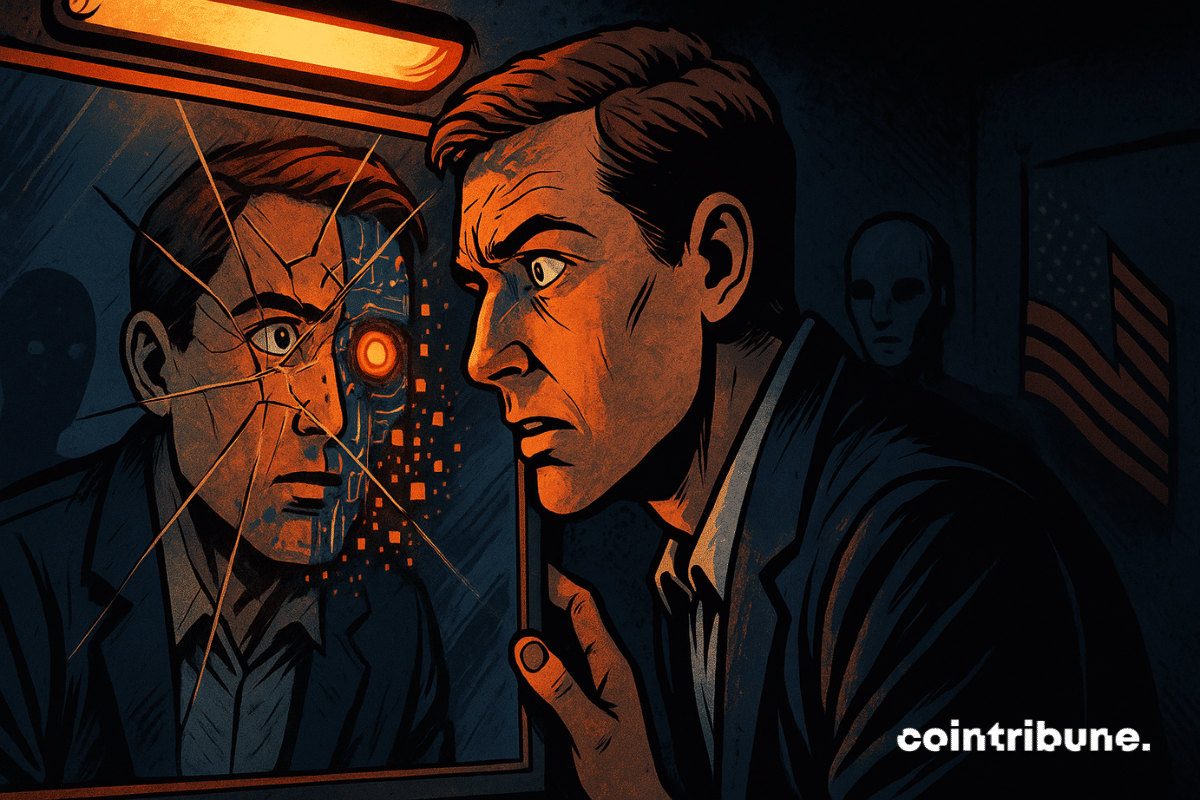In brief
- •Half of Americans say they are more worried than excited about AI.
- •73% would accept its help with domestic chores, but 61% want more control.
- •53% believe AI reduces creativity, and 50% that it weakens human relationships.
- •The divide between experts and the general public illustrates growing distrust toward this technology.
AI in everyday life appeals but deeply worries Americans
Published in September 2025, the Pew Research Center survey questioned more than 5,000 American adults about their perception of artificial intelligence. The results reveal a mix of fascination and concern.
Nearly one in two Americans now say they are more worried than enthusiastic, a marked increase compared to 2019. Conversely, only 10% declare themselves clearly enthusiastic about its rise.
However, the use of AI is already embedded in daily life. 73% of respondents would accept delegating some repetitive tasks, such as cleaning or scheduling. But this consent comes with a desire for control: 61% demand safeguards so AI does not invade all spheres of their life.
This ambivalence reflects deep concern. More than half of those surveyed believe that AI reduces creativity and weakens social relationships. In other words, AI appeals for its practicality but scares due to its dehumanizing potential.
A generational and cultural divide
The study also highlights a generational gap. Those under 30, despite being the most familiar with AI, paradoxically appear more pessimistic. 61% believe it will harm creativity, compared to just 42% of those over 65.
This mistrust is also expressed in academia. On American campuses, a recent survey reveals that even Generation Z doubts the positive impact of AI on university learning. Many fear it will weaken teaching quality and devalue diplomas.
At the international level, American unease is not isolated. The 2025 AI Index report from Stanford confirms rising concerns in developed countries despite recognized efficiency gains. In Europe, Germany and the United Kingdom share a similar perception: AI is seen more as a risk than an opportunity.
Finally, trust remains a major vulnerability. More than half of Americans admit they cannot distinguish AI-generated content from human content. This loss of bearings fuels growing distrust, especially as confidence in major tech companies has been declining for several years.
A gap between experts and the general public
Differences do not stop at generations. They also deepen between experts and citizens. While 56% of AI specialists anticipate an overall positive impact on the American economy, only 17% of the general public share this view. This divide reveals a perception issue: AI is seen by elites as an opportunity but by citizens as a social threat.
Minorities and vulnerable people express even more pronounced fears. For them, AI tends to amplify existing discriminations. This concern is confirmed by several academic studies showing that algorithms reproduce social biases, especially in employment and justice.
Finally, the regulatory dimension becomes essential. According to a Gallup‑SCSP 2025 study, 72% of Americans want stricter AI regulation by the government. This demand reflects a collective awareness: innovation must remain at the service of humans, not the opposite.
Thus, if AI establishes itself as an essential tool in everyday American life, its adoption is still hampered by a diffuse fear: losing what makes human uniqueness. Between fascination and concern, the debate is just beginning. And in the years ahead, it could well reshape the balance between technology, society, and democracy.

